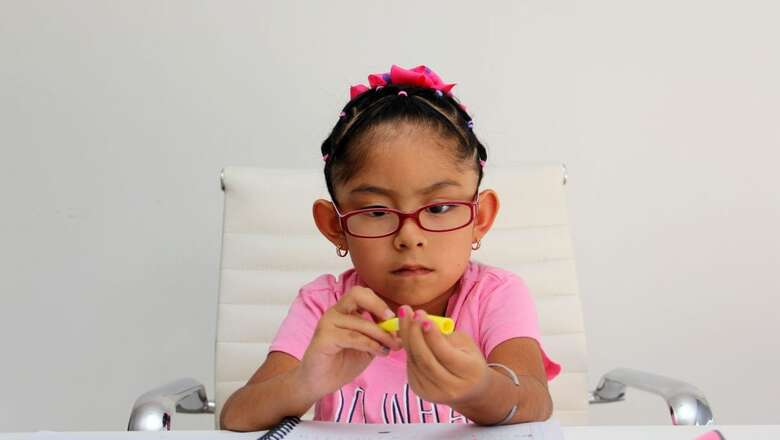
views
Rett syndrome is a rare and severe neurodevelopmental disorder that primarily affects females, typically becoming evident in early childhood. It is characterized by a loss of acquired motor and communication skills, accompanied by a range of debilitating symptoms, including repetitive hand movements, breathing irregularities, seizures, and intellectual disability. Rett syndrome is caused by mutations in the MECP2 gene, impacting brain development and function. The progression of the disorder varies from person to person, with some individuals experiencing profound disabilities, while others may retain some functional abilities.
Dr Quazi Sumaira, Consultant Paediatric Intensivist, SPARSH Hospital, Bangalore, says, “Rett Syndrome is a rare neurological disorder that primarily affects girls. It is caused by a genetic mutation and typically becomes evident between 6 months and 2 years of age. Children with Rett Syndrome experience the most common symptoms including losing the ability to perform hand skills, loss of language skills, autistic features, panic attacks, tremors, seizures and breathing irregularities. While the disease has no cure, early intervention and supportive care can greatly improve the quality of life for affected individuals.”
Symptoms
Rett syndrome is an uncommon but significant neurological condition that primarily affects children. Dr Parimala V Thirumalesh, Sr. Consultant, Neonatology & Paediatrics, Aster CMI Hospital, Bangalore, says, “Because of its comparable symptoms to autism or cerebral palsy, it is frequently misdiagnosed. Girls are more commonly affected than boys by this illness, which usually appears between six months and two years. Its symptoms are so faint that they may be misdiagnosed or ignored.” Dr Thirumalesh explains some of the common symptoms, that are as follows:
- Developmental delays, slower brain growth, and head size is smaller than usual. It is often the early and first sign of Rett Syndrome.
- Inability to walk, communicate or crawl
- Loss of communication abilities.
- Unusual/uncontrolled hand movements include hand-wringing, squeezing, clapping, tapping or rubbing.
- Unusual eye movements
- Seizures.
- Irregular heartbeat.
- Sleep disturbances.
For parents of children with Rett Syndrome, the journey can be challenging. Dr Sumaira shares tips to help provide the best care:
- Seek a multidisciplinary team of specialists.
- Focus on adaptive therapies and communication tools.
- Create a supportive and stimulating environment.
- Connect with support groups and resources.
- Ensure self-care and respite for parents.
Parents who are scuffling with this should know that they are not alone. Initially, obtain expert advice in order to obtain a precise diagnosis and early intervention is key, suggests Dr Thirumalesh.
- Make connections with support groups to learn from and share experiences. It takes time to grasp your child’s requirements; therefore, patience is essential.
- Establish a habit that gives you comfort and stability.
- Be aware of your child’s triggers and avoid them
- Promote communication with assistive technology, eye contact, and gestures.
- Appreciate the little things in life and value your child’s special traits. The power of love and support should never be undervalued.
Rett syndrome may come with challenges, but with support and love, the child can cope with it. Raising awareness about Rett Syndrome is crucial to fostering understanding, compassion, and support for affected families. Increased awareness can drive research, funding, and collaboration to ultimately find a cure. By standing together, we can make a meaningful difference in the lives of those battling this rare and relentless disorder.


















Comments
0 comment